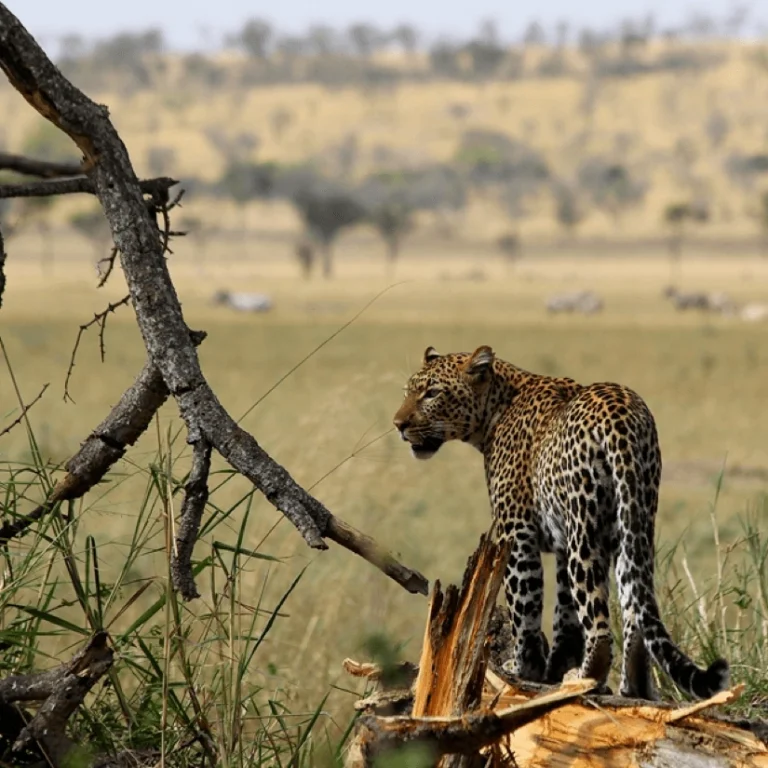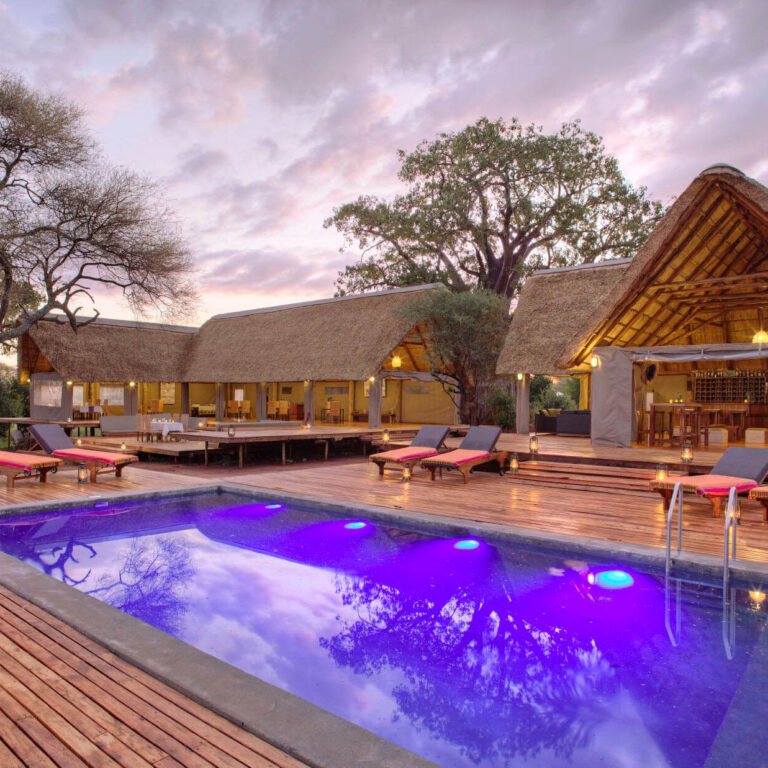Kilimanjaro Evil? Myth, Mystery, and Reverence
Mount Kilimanjaro, Africa’s tallest mountain, is a breathtaking natural wonder, attracting adventurers, dreamers, and spiritual seekers from across the globe. Rising majestically to 5,895 meters, its snow-capped peaks are a symbol of natural grandeur and resilience. Yet, for all its beauty, Kilimanjaro also shrouded in myths and legends that question whether it harbors malevolent forces or serves as a divine sanctuary. Is Kilimanjaro “evil,” or is this imposing mountain merely misunderstood? Is Mount Kilimanjaro evil? No, Mount Kilimanjaro is not evil, but it is a place of spiritual significance for many Tanzanians. Kilimanjaro mountain home to spirits and deities that believed to protect the balance between nature and humans. However, some believe that the mountain is home to an evil spirit named Njaro who causes sickness and death to those who climb the mountain.
To answer this question, Is Mount Kilimanjaro evil? we delve into the mountain’s myths, cultural significance, and the experiences of those who live in its shadow.
Kilimanjaro in Mythology: A Mountain of Gods and Spirits
For the Chagga people, the indigenous community living on Kilimanjaro’s fertile slopes, the mountain is not just a geological formation. It sacred ground, revered as a home to deities and spirits. According to Chagga mythology, Kilimanjaro is the abode of Ruwa, the creator god, who watches over the land from the mountain’s icy heights.
The legend of Ngai, another divine figure associated with Kilimanjaro, paints the mountain as a throne of power. Ngai believed to control the mountain’s weather, dispensing blessings like rain and sunshine or calamities like storms and droughts. To appease Ngai, the Chagga people hold rituals and offer sacrifices, often of livestock, to ensure harmony between humans and nature.
These myths emphasize Kilimanjaro’s dual nature. It is both nurturing and intimidating, a source of life and a reminder of humanity’s smallness before nature’s grandeur.
Is Kilimanjaro Evil? The Origins of Fear
The perception of Kilimanjaro as “evil” likely stems from its formidable challenges and eerie phenomena. Climbers recount sudden storms disorienting fogs, palpable sense of being watched. The mountain’s unpredictable weather and dangerous terrain have claimed lives, earning it a reputation as a formidable and, at times, malevolent force.
Locals often speak of “phantom voices” carried by the wind and mysterious lights seen near the summit. These occurrences are attributed to spirits, either protective guardians of the mountain or restless souls of those who perished attempting the climb. Such stories fuel the idea that Kilimanjaro may be more than a natural wonder—it may be a domain of the supernatural.
Despite these tales, the Chagga people do not view the mountain as inherently evil. Instead, they see it as a place of immense power that demands respect. Disrespect or arrogance towards the mountain believed to invite misfortune, leading some to interpret its wrathful side as “evil.”
The Duality of Kilimanjaro: Creator and Destroyer
Like many natural phenomena, Kilimanjaro embodies a duality that transcends simplistic labels like “good” or “evil.” Its towering glaciers provide vital water to the surrounding communities, nourishing farms and ecosystems. Yet, those same glaciers are melting due to climate change, threatening livelihoods and biodiversity.
The volcanic origins of Kilimanjaro further illustrate this duality. The mountain was formed by ancient eruptions that both destroyed and created. Its fertile slopes, rich with volcanic soil, now sustain coffee plantations and other crops, making it an essential resource for the region’s economy.
This duality mirrors the beliefs of many indigenous cultures that see nature as a balance of opposing forces. Kilimanjaro is not evil; it is a reflection of the world’s complexity, capable of both nurturing and challenging those who encounter it.
Rituals and Spiritual Practices Around Kilimanjaro
For the Chagga people and other communities, Kilimanjaro is not merely a physical entity but a living, breathing force. Spiritual practices and rituals deeply ingrained in their culture, ensuring a harmonious relationship with the mountain.
Offerings and Prayers: Before climbing Kilimanjaro or undertaking significant endeavors, rituals are performed to seek blessings from the mountain’s spirits. These often include offerings of milk, beer, or grains, symbolizing gratitude and respect. Climbers guided by locals are sometimes asked to participate in these ceremonies, fostering a deeper connection to the mountain.
The Guardian Spirits: Kilimanjaro is believed to be guarded by ancestral spirits who protect its sacredness. These guardians are said to appear in dreams or visions, offering guidance or warnings. Disrespecting the mountain—through littering, loud behavior, or reckless climbing—is thought to anger these spirits, leading to accidents or misfortune.
Seasonal Celebrations: The Chagga people celebrate the mountain’s gifts through seasonal festivals, honoring the gods and spirits for fertile lands and abundant harvests. These events are marked by singing, dancing, and storytelling, reinforcing the cultural and spiritual ties to Kilimanjaro.
Legends That Fuel the Mountain’s Mystique
Many legends surround Kilimanjaro, each contributing to its enigmatic reputation. One popular tale involves a hidden treasure buried within the mountain. It is said that those who seek this treasure out of greed are met with tragedy, while those with pure intentions are rewarded.
Another legend speaks of a divine fire that burns eternally within Kilimanjaro. This fire, often associated with the mountain’s volcanic origins, is believed to represent the life force of the gods. Some climbers report feeling a strange warmth near the summit, even amidst freezing temperatures, attributing it to this mystical flame.
These stories, passed down through generations, illustrate how deeply Kilimanjaro is intertwined with the cultural and spiritual identities of those who revere it.
Modern Perspectives on Kilimanjaro’s Mysticism
In the modern era, Kilimanjaro continues to captivate not only locals but also global adventurers. Climbers often report profound spiritual experiences during their journey, from a heightened sense of self-awareness to moments of awe-inspiring connection with nature.
Environmentalists and conservationists, meanwhile, view Kilimanjaro as a symbol of resilience and fragility. The melting glaciers serve as a stark reminder of humanity’s impact on the planet, while the mountain’s enduring presence inspires efforts to protect its ecosystems.
For many, the question of whether Kilimanjaro is “evil” becomes irrelevant. Instead, the focus shifts to understanding and preserving its complex beauty.
Kilimanjaro’s Legacy: A Beacon of Power and Reverence
Kilimanjaro is far more than a mountain. It is a cultural and spiritual icon, a natural wonder, and a source of mystery and inspiration. Its myths and legends reflect humanity’s timeless quest to understand the forces that shape our world. Whether seen as a benevolent guardian or a formidable challenger, Kilimanjaro commands respect and awe.
Ultimately, Kilimanjaro is not “evil.” It is a manifestation of the natural world’s power and mystery, inviting all who encounter it to embrace its lessons of humility, resilience, and reverence.
By respecting Kilimanjaro’s spiritual significance and safeguarding its environment, we ensure that this majestic peak remains a source of wonder for generations to come.
Here are some of the beliefs about Kilimanjaro:
For many Tanzanians, Mount Kilimanjaro isn’t evil but a place of deep spiritual significance. The Chagga, who live near its base, believe Kilimanjaro is inhabited by both dieties and the spirits of their ancestors. These forces are protectors who ensure the balance between humans and nature.
Njaro: Some believe that Njaro is an evil spirit or demon that lives in the mountain. Njaro is said to cause sickness, which is similar to altitude sickness. Some stories describe Njaro as a guardian, while others describe it as more menacing.
Deities: Some believe that the mountain is home to a local deity that causes sickness to those who climb it.
Ancestors: The Chagga people believe that the spirits of their ancestors live in the mountain.
Balance: The spirits and deities of Kilimanjaro are believed to ensure that the balance between nature and humans is maintained. They are said to punish those who disrespect the land and bless those who honor it.
The name Kilimanjaro may come from the words kilima (mountain) and njaro (demon). However, the Masai call the mountain Oldoinyo Oibor, which means “White Mountain”.
FAQs about Kilimanjaro Evil? Home of Deities, Beliefs, Spirits & Guardians
These FAQs offer insight into the spiritual and cultural significance of Kilimanjaro. Dispelling the notion of it being inherently “evil” while highlighting its deep connections to the beliefs of the local people. Whether seen as a home to deities, a sacred place, or a challenge to climbers. Kilimanjaro continues to captivate and inspire those who visit it.
Rich in spiritual and cultural aura, Kilimanjaro is a symbol of power and wonder. Feel its magic and show its spiritual power with Custom Keyrings, customizing them with your name, a cool mountaineering quote, or a symbol that resonates with you.
Whether you’re a solo climber chasing your dreams or part of a team on a wild expedition, custom keyrings can add color to your life. It’s like a mini passport to the world of mountains.
Why is Kilimanjaro considered the home of deities and spirits?
Kilimanjaro holds a significant place in the spiritual beliefs of the local Chagga people and various other African cultures. The mountain believed to be the home of powerful spirits and deities who govern the region. The Chagga people view the mountain as a sacred place. Where ancestral guardians reside, and it often associated with supernatural forces that influence both the land and the people who live near it.
Is Kilimanjaro considered “evil” in any culture?
Kilimanjaro not generally seen as “evil” by the local cultures, but its mysterious and awe-inspiring presence has given rise to various superstitions and beliefs. Some see the mountain as a place of challenges and obstacles, where only the brave can conquer its summit. The perceived danger of climbing the mountain, combined with its powerful symbolism. May contribute to an image of the mountain being “untamable” or difficult to understand.
What are the spiritual beliefs surrounding Kilimanjaro?
Kilimanjaro deeply rooted in the spiritual beliefs of the Chagga people. They believe that the mountain is a meeting point between the physical world and the spiritual realm. The gods and ancestral spirits are thought to dwell on the mountain, with the higher peaks being sacred areas where only certain rituals are allowed. The locals hold that the mountain has both protective and challenging qualities, offering blessings to those who approach it with respect and reverence.
Why is there a belief that Kilimanjaro is inhabited by guardians?
The idea of Kilimanjaro being guarded by spirits deities stems from the cultural importance of the mountain to the Chagga people it thought that ancestral guardians watch over the mountain and its surrounding lands, ensuring that the natural and spiritual balance is maintained. These guardians are believed to offer protection to those who approach the mountain with good intentions while presenting dangers to those who disrespect its sacredness.
How did Kilimanjaro’s “evil” reputation come about?
The notion of Kilimanjaro being “evil” likely arises from its formidable nature. It is a mountain of extremes—its altitude, unpredictable weather, and challenging climbing conditions make it dangerous to those who are unprepared. The mountain has claimed the lives of several climbers, adding to the perception of it being a hazardous or even “sinister” place. Additionally, the myths and legends surrounding its spiritual significance sometimes imbue the mountain with an aura of mystery and power that could be perceived as malevolent by those unfamiliar with the local culture.
What is the mystery of Mount Kilimanjaro?
Mount Kilimanjaro had been thought to be the source of River Nile and a Mountain of mystery – the mystery being a snowcapped Mountain in Africa. Africa was thought to be a continent of savages, thus stories about the continent were often down played. Debunking myths – Is Mount Kilimanjaro evil?
Separating Fact from Fiction: The notion of Mount Kilimanjaro being inherently “evil” stems from centuries-old superstitions and belief. While the mountain’s formidable presence may evoke a sense of awe and reverence. In reality, Mount Kilimanjaro embodies the beauty and resilience of the natural world. Offering profound insights into the interconnectedness of life on Earth.
Embracing the Magic of Kilimanjaro: Far from being a harbinger of evil, Mount Kilimanjaro serves as a beacon of hope. Inspiration, and wonder for all who gaze upon its towering heights. Whether viewed as a geological marvel, an ecological sanctuary, or a cultural icon. Kilimanjaro’s significance transcends mere witch, welcome us to embrace the mysteries of the natural world with humility and reverence.
What do the Chagga people believe about the spirits of Kilimanjaro?
The Chagga people believe that Kilimanjaro is home to powerful spirits that guide and protect the land. These spirits are deeply intertwined with the well-being of the local population. The mountain seen as a provider, giving water to the people through its glaciers. And it also thought to control the weather patterns in the surrounding regions. The spirits of Kilimanjaro are honored through traditional ceremonies, and offerings are often made to ensure a good harvest or favorable weather.
Is Kilimanjaro associated with any specific deities in Chagga mythology?
Yes, Kilimanjaro associated with several deities in Chagga mythology, particularly those that govern nature, fertility, and weather. The mountain thought to be under the control of the god Ruinswa. A deity believed to govern the rain and storms. Ruinswa’s presence said to be felt most strongly during the mountain’s storms and the rainfall that feeds the local rivers and farms. Other gods associated with the mountain are those who oversee health, prosperity, and the balance of the natural world.
Can Kilimanjaro’s spiritual significance be linked to modern-day beliefs?
While many people in Tanzania today are aware of Kilimanjaro’s spiritual significance, the traditional beliefs have become less dominant due to modernization and religious changes, such as the spread of Christianity and Islam. However, some locals still hold to the ancient customs, honoring the mountain as a sacred place and respecting its guardians. For many climbers, Kilimanjaro seen as a symbol of spiritual transformation and personal challenge.
Is there any evidence that Kilimanjaro is “haunted” or inhabited by evil spirits?
There no scientific evidence to suggest that Kilimanjaro haunted or inhabited by evil spirits. The mountain surrounded by myth, legend, and mystery, which can give rise to supernatural interpretations. Is Mount Kilimanjaro evil? the perceived danger of climbing Kilimanjaro, such as the altitude sickness affects climbers or the sudden change in weather conditions. Might contribute to the idea that the mountain cursed or home to malevolent forces.
What role do Kilimanjaro’s guardians play in the cultural practices of the Chagga people?
The guardians of Kilimanjaro believed to be vital protectors of both the land and the people. The Chagga people traditionally make offerings to the guardians to ensure good fortune in farming and to seek blessings for health and prosperity. Rituals and ceremonies performed at certain sites on the mountain to honor these spirits. Additionally, Is Mount Kilimanjaro evil? climbers and trekkers often observe respectful rituals before embarking on their journey, acknowledging the power and significance of the mountain.
Is Kilimanjaro a place of pilgrimage?
For many of the local communities, Kilimanjaro can be considered a sacred site. It is not necessarily a pilgrimage destination in the same sense as religious shrines or temples, but it is a place of spiritual reverence and ancestral significance. People often visit the mountain to pay respect to the gods and spirits, seeking guidance or blessings for significant life events.
How does Kilimanjaro’s reputation as a place of spiritual power affect tourism?
Kilimanjaro’s spiritual power enhances its allure as a tourist destination. Many climbers drawn to the mountain not only for the physical challenge. Also for the sense of personal transformation that comes with reaching the summit. For some, the journey up Kilimanjaro is as much about the spiritual experience as it is about conquering a physical peak. Tourists encouraged to approach the mountain with respect. They are entering a place that holds deep cultural and spiritual meaning.
What advice do local guides give to climbers regarding Kilimanjaro’s spiritual significance?
Local guides often advise climbers to approach Kilimanjaro with reverence and respect. It is important to be aware of the mountain’s sacredness and to understand that it is a place of spiritual importance for the local people. Guides may share stories of the mountain’s deities and spirits. Emphasizing the need to honor mountain throughout the climb to avoid actions that could be seen as disrespectful
What is disappearing from the top of Mount Kilimanjaro?
The iconic glaciers at the top of Mount Kilimanjaro are rapidly disappearing due to climate change. Over the past century, the ice caps have shrunk significantly, losing more than 80% of their original mass. This dramatic reduction is primarily caused by rising temperatures, reduced snowfall, and changing weather patterns. The melting glaciers serve as a visible sign of the broader impacts of global warming on the planet’s ecosystems and landscapes. In summary, the disappearance of the Furtwängler Glacier cannot be stopped. Along with all other glaciers on Kilimanjaro, as well as those on Mount Kenya and Rwenzori, it will vanish by the middle of this century. People have observed this process since the late 19th century.
Why is it called Mount Kilimanjaro?
Mount Kilimanjaro’s name is believed to have originated from the Swahili word “Kilima” meaning “mountain” and “Njaro,” which can be interpreted as “white” or “shining.” This refers to the mountain’s snow-capped peak that stands out against the surrounding landscape. The name reflects the majestic and striking appearance of the mountain, which has been a symbol of beauty and mystery for locals and explorers alike. The Swahili of the coast call the snow-mountain Kilimanjaro, “Mountain of Greatness.” It may also mean “Mountain of Caravans” (kilima – mountain; jaro caravans), a landmark for caravans seen everywhere from afar.








